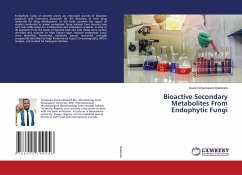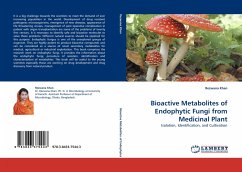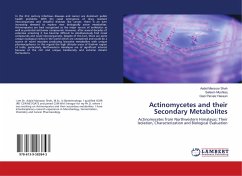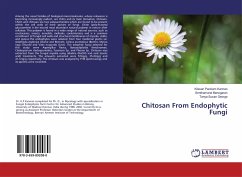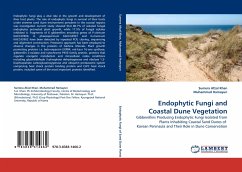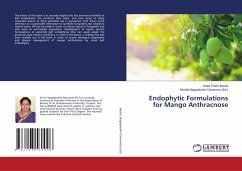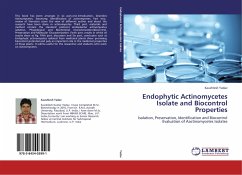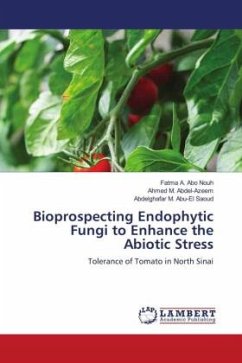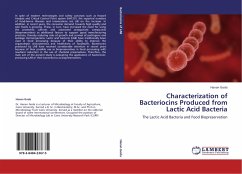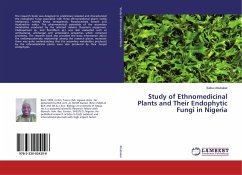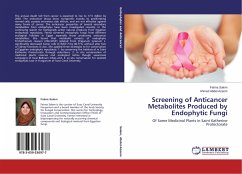
Screening of Anticancer Metabolites Produced by Endophytic Fungi
Of Some Medicinal Plants in Saint Katherine Protectorate
Versandkostenfrei!
Versandfertig in 6-10 Tagen
41,99 €
inkl. MwSt.

PAYBACK Punkte
21 °P sammeln!
The annual death toll from cancer is expected to rise to 17.5 million by 2050. The anticancer drugs show nonspecific toxicity to proliferating normal cells, possess enormous side effects, and are not effective against many forms of cancer. The anticancer properties of several secondary metabolites from endophytes have been investigated recently. In the continuing search for biologically active natural products from Egyptian endophytic mycobiota, Fatma screened endophytic fungi from different ecological habitats in Egypt especially those producing anticancer metabolites. She found that metaboli...
The annual death toll from cancer is expected to rise to 17.5 million by 2050. The anticancer drugs show nonspecific toxicity to proliferating normal cells, possess enormous side effects, and are not effective against many forms of cancer. The anticancer properties of several secondary metabolites from endophytes have been investigated recently. In the continuing search for biologically active natural products from Egyptian endophytic mycobiota, Fatma screened endophytic fungi from different ecological habitats in Egypt especially those producing anticancer metabolites. She found that metabolic extracts of endophytic Trichothecium roseum (23A-SCUF) isolated from Origanum syriacum L. significantly decreased tumor cells of (MCF-7) by 48-71%, without alter liver or kidney functions in vivo. She applied three strategies to for conservation of Egyptian endophytic mycobiota: 1- by conserving the habitats of in Saint Katherine Protectorate through volunteers, 2- in situ conservation of medicinal plants reserves and ecological niches though awareness campaigns of local Bedouin tribes and, 3- ex situ conservation for isolated endophytic taxa in Fungarium of Suez Canal University.



